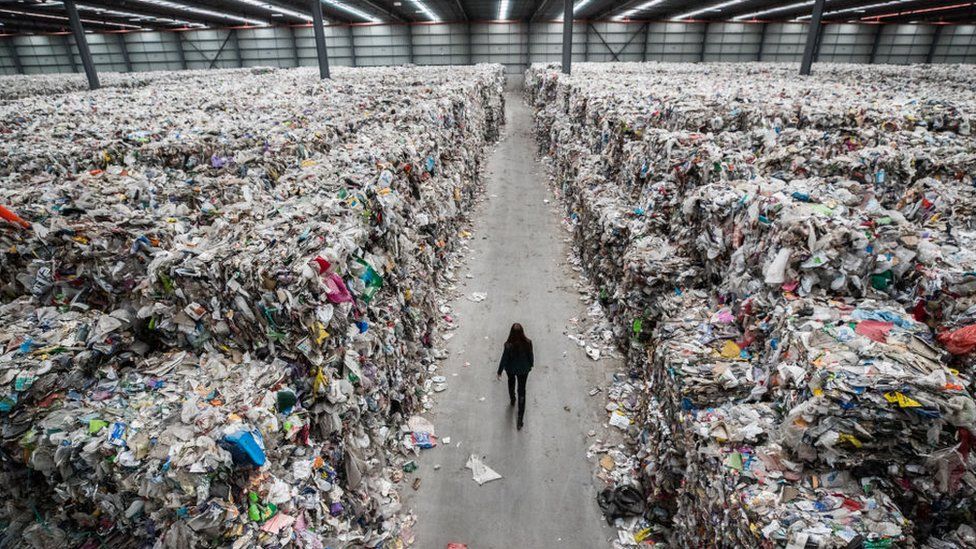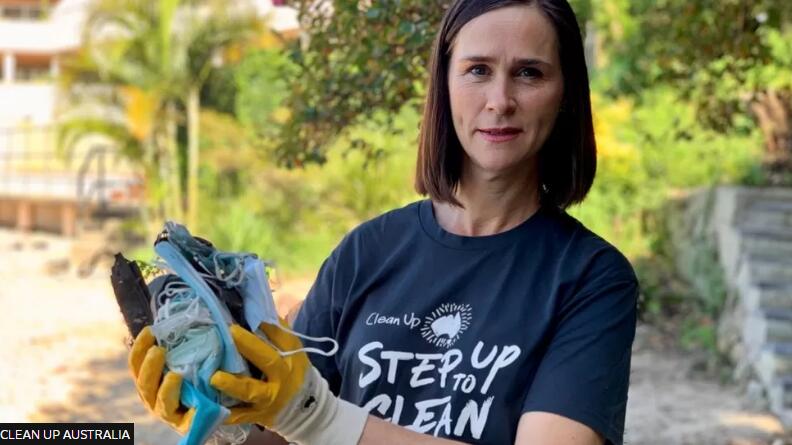How Australia is seeing a ‘big shift’ on plastic waste
On Tuesday, Australia takes another step towards reshaping its throw-away society.
A range of single-use plastic, including straws, cutlery and micro beads in shampoo, will be banned in its most populous state, New South Wales (NSW), in a bid to reduce waste.
“Australia has been very active over the last few years in moving to ban single-use plastics. We now have bans in place in over half of Australia’s states and territories,” says Shane Cucow, the plastics campaign manager at the Australian Marine Conservation Society.
“It’s been incredible progress considering just two years ago not a single state and territory had banned single-use plastics.”
Australia has complex record with plastic waste. Though it has long been accused of inaction, the country has also seen celebrated examples of leadership.
One of the forefathers of the anti-waste movement was Ian Kiernan, a Sydney-born property developer who became a professional yachtsman.
In the 1980s, he had an environmental epiphany in the waters of the Sargasso Sea in the Atlantic Ocean during a solo race around the world.
“He was horrified by the amount of pollution, particularly plastic,” explains one of his daughters, Pip. “So, that was the impetus to come back and do something about it.”
In 1989, Ian Kiernan launched Clean Up Sydney Harbour, a community effort to tackle litter in one of the world’s most famous waterways.
“He was worrying that no-one would turn up, but 40,000 Sydneysiders turned up,” Ms Kiernan tells the BBC.
A year later it became a national event, and Clean Up Australia Day was born.
“It is absolutely quintessentially Australian in that we are great volunteers but we don’t like being told what to do. Clean Up Australia is about empowering you. You chose where you clean up. We’ll give you the tools,” adds Ms Kiernan, who’s the chair of the organisation her father set up, which attracts a million volunteer waste warriors each year.
“He’d be encouraged to see that we are phasing out problematic single-use plastic items. But he would equally be frustrated that we are still producing and wasting so much plastic across the world.”
In June, NSW banned lightweight plastic bags. Other items included in Tuesday’s ban include single-use plastic drink stirrers and cotton buds, as well as expanded polystyrene containers for take-away food.
Queensland will disallow many of these products in September 2023, along with heavyweight plastic shopping bags under a proposed “five-year roadmap”. Victoria will act sooner, and will ban “problematic single-use plastics from sale or supply” from 1 February 2023.
The pace of legislative reform might be impressive, but Australia’s mission to tame its plastic waste problem has a long way to go.
“We’re just at the start of our journey. Across the board Australia’s plastic packaging recycling rate is still just 16%. Our national target is 70%,” Mr Cucow says. “So, we are a very long way from actually recovering and recycling all of our plastic in Australia.
“Australia is so far behind in terms of recycling our plastic packaging and one of the big barriers is soft plastics, which are very difficult to recycle. That’s a legacy of decades of neglect.”

A global comparison of plastics waste management placed Australia 7th among 25 nations for its overall efforts to control plastic pollution, behind European countries, Japan, the UK and the US. Australia was rated 1st for “promoting safe and informed plastic usage” but 16th for “efficient collection and sorting channels”, said the report released in October last year.
About a third of Australians live in NSW. The state’s environment minister, James Griffin, has acknowledged the challenges that lie ahead.
“The amount of plastic in our oceans is predicted to outweigh the amount of fish by 2050. That is a horrifying prediction and a call to action to ensure our wildlife… can have a brighter future,” he said.
Mr Griffin asserted the state’s bans would “prevent 2.7 billion items of plastic litter from entering the environment over the next 20 years”.
In June, Australia’s national science agency, CSIRO, reported some good news that plastic pollution littering the coast had fallen by 29% compared to 2013.
For Britta Denise Hardesty, a senior principal research scientist in its Oceans and Atmosphere unit, it was a “heartening” discovery and a sign that government policies were working.
“We are starting to see a real change in our relationship with plastic,” she told the BBC, noting a “really big shift” in state government practices, including buy-back or cash-for-containers schemes reward individuals for recycling bottles and other items.
“We are starting to put a price on plastic where we actually treat plastic as a valuable item, as a commodity rather than just as waste. Think about aluminium. It has intrinsic value and we don’t tend to find it lost to the environment,” she said.
“I don’t foresee that we are going to have a plastic-free future. I’d like to see us designing with a legacy mindset, designing products for longer-term and thinking about what is the next life of that product going to be.”
For Pip Kiernan, her late father’s mission goes on more than 30 years after it began.
“He predicted all those years ago that plastics would be the scourge for our generation and he was right,” she says.
